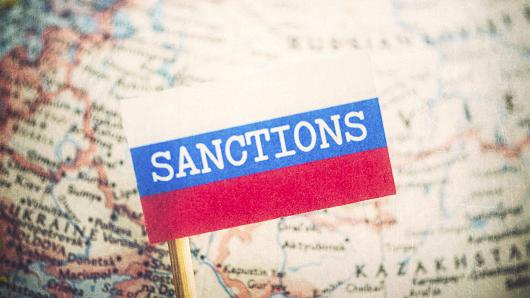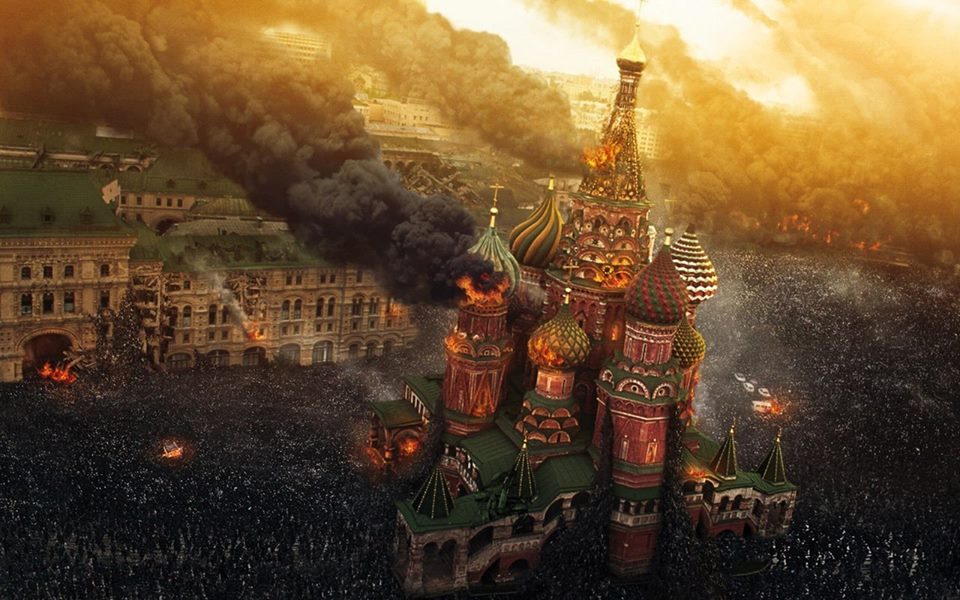The best evidence for the success of sanctions is that Russia has not achieved its goals.
Economic losses: from 1.5% to 6% of GDP
In terms of Russia as a whole, if Alexii Kudrin is to be believed, sanctions cost Russia 1.5% of GDP, which aligns with the IMF, which estimates that”…sanctions and counter sanctions might have initially reduced real GDP by 1 to 1½ percent. Prolonged sanctions may compound already declining productivity growth. The cumulative output loss could amount to 9 percent of GDP over the medium term.”Since the Russian economy is expected to grow at about 1.5% in the future, that is equivalent to 6 years of no growth. Estimates that Russia lost over $100 bn in 2014/2015 due to sanctions suggest the cost is higher. A loss of $100 bn for a Russian economy that went from a GDP of about $2,100 bn in 2014 to about $1,300 bn in 2015--in large part due to the fall in energy prices--suggests a cost from sanctions in those two years of anywhere from 2 to 6% of GDP in rapidly evolving economic circumstances.

Rejection of Russia's behaviour
Beyond the failure to achieve its goals and the economic cost, there are other equally important impacts from sanctions. Sanctions demonstrate a rejection by the international community of Russia's behavior.The US and the EU have acted on behalf of the principle of self-determination and the inviolability of national borders, and they continue to do so.
Targeted effect
In addition, the nature of sanctions has been important in targeting their effect. The most important sanctions are the more comprehensive ones that prohibit providing new debt or equity of greater than 30 day's maturity and restrictions on the energy and defense sectors. These prohibitions, along with a reluctance to risk capital in Russia while tensions persist, have all but eliminated Russia's access to international finance. Foreign investment in Russia has plummeted from $71 bn in 2013 to just $7 bn in 2016. It is not expected to return to anywhere near the 2013 level in the foreseeable future (IMF: Russian Federation - Staff Report For The 2016 Article IV Consultation). In the absence of sanctions, what is the likelihood that companies such as ExxonMobil would have halted their investment plans in Russia? They might have assessed the risk as higher, but the prohibitions and arm-twisting provided by sanctions are what stopped them. The other sanctions that were designed to target key businesses and individuals in Russia are important, as well, in recognition of the role they play in supporting Putin. By targeting wealthy or influential businesses and individuals closely associated with Putin, the West hoped to hurt those who were key in enabling Putin's actions against Ukraine. As beneficiaries of vast riches extracted from the Russian economy, their interests are in self-enrichment at the expense of the state and the people.Putin is clearly worried about public discontent as the 2018 election approaches and, if Putin's support begins to look shaky, he has to worry about the loyalty of the oligarchs and others who are already hurting from sanctions.
Sanctions take time
In one key respect sanctions have been exceptional. Against expectations, they have held. The West has new found resolve to confront Russian interference in the affairs of not only Ukraine but of all Western countries through its manipulation of information and various forms and levels of aggression. No one, including Marine Le Pen, should be surprised that sanctions take time. Russia is still a large, powerful country capable of defending itself economically and politically. Sanctions are not war. They don't produce dramatic, immediate results. Even wars don’t yield immediate results; otherwise, Russia would have gotten what it wanted long ago. Sanctions take time, but they are ultimately effective; as sanctions against Iran, Myanmar and South Africa have shown. When sanctions are not effective, such as in the case of North Korea, it is the sanctioned state that suffers. North Korea has been reduced to an isolated, impoverished pariah state. Like North Korea, Russia now faces years of economic stagnation--and probably slow national decline--unless it can find a way to reform its economy and a path to rapprochement with the international community. Marine Le Pen can rest assured that sanctions are effective. A new report by the US Department of State concludes that sanctions against Russia have caused substantial harm to targeted individuals and firms. As reported by BuzzFeedNews the State Department report concludes that“the average sanctioned company or associated company loses about one-third of its operating revenue, over one-half of its asset value, and about one-third of its employees relative to their non-sanctioned peers.” BuzzFeedNews goes on to report, “…the researchers also discovered that the “smart” or “targeted” sanctions placed against Russian companies and individuals starting in 2014 live up to their name. The four rounds of sanctions that have been put into place — aimed at Putin’s inner circle, several Russian banks, the defense industry, and the energy sector — have, according to the paper, managed to affect those individuals without being a primary damager of the Russian economy broadly.”BuzzFeedNews quotes Bill Browder, co-founder of Hermitage Capital Management Group and zealous critic of Putin, that Putin is “apoplectic” about the sanctions and as told by Browder,
“In my mind, the reason for that reaction is that wealth is so concentrated in Russia that you can go after the assets of just a few bad players and you have a disproportionate effect on the evil and rot in Russia.”
Harm to ordinary Russians?
Since 2013 nearly all Russians have experienced a decline in their economic welfare, and poverty has increased dramatically—it rose from 11.2%, or 16.1 mn people in 2014, to an estimated 14.2%, or 20.1 mn people in 2016. Deputy speaker Gorsana Chomich should know though that the principal reason is not sanctions but poor economic management and the collapse in energy prices, as well as self-inflicted economic harm from political adventurism. In the realm of sanctions, the greatest harm to ordinary Russians has come from Russia’s own counter-sanctions, especially on the import of food, which has driven up prices beyond what many Russian can afford. Lest deputy speaker Gorsana Chomich still harbor concerns that sanctions have not been specific enough, as of mid-2016 the US has sanctioned by name 111 businesses and political figures and 82 firms and an additional 136 firms under the sectoral sanctions (an additional 7 individuals, 8 firms, and 2 vessels were added in December 2016). The EU has sanctioned as of mid-2016 149 individuals and 37 firms and an additional 20 firms under sectorial sanctions. Information on US and EU sanctions, including targeted individuals and businesses can be found here (US) and here (EU).Sanctions are the consequence of Russia’s own policies and the limited means available to the West to influence Russia’s aggression against other states.




